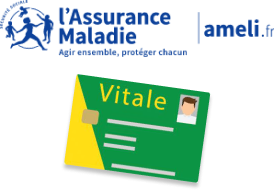Moving to France from UK
Last updated October 2022
Since Brexit when the UK left the European Union on 31st December 2020, our clients have been asking us for information about buying property in France and moving to this beautiful country full-time. Set out below are the answers to some of the most frequently asked questions - visa requirements, type of visa such as 12-month visa or visitor visa. All information is provided in good faith and subject to change. We recommend that you visit the official UK Government website before your move https://www.gov.uk/guidance/living-in-france
Moving to France - guide to types of visas and residency
Here is our step-by-step guide to visas and residency.
You must inform the UK Government offices that deal with your benefits, pension and tax before you move. This means contacting your local council and giving them a forwarding address as well as contacting your relevant benefits or pension centre. You must also tell HM Revenue & Customs (HMRC), filling in form P85.
If you are moving to France after 31 December 2020, you will be required to obtain a long-term visa, as you will be staying over 90 days, before going to your local Prefecture and filing your application for a residency permit. You can make your application (in English) with the French Government at www.france-visas.gouv.fr The correct visa will depend upon your individual circumstances.
Types of French visa - there are three types.
- Short stay visa which only lasts three months
- Temporary visa (visa de long séjour valant titre de séjour) which is for stays of up to a year
- Long stay visa (visa de long séjour) which is for stays of a year or longer.
It is this third visa that you should apply for, using the link above, before moving to France and applying for your residency permit at your local Prefecture.
Applying for residency
For your application you will need to submit a whole host of documents, as well as paying the application fee (currently 225 euros). This documentation includes:
- Your long stay visa
- Your passport
- A full birth certificate (translated)
- A proof of address - must be less than six months old e.g., electricity bills
- Three passport photos
- Your medical certificate issued by the OFII
Depending upon the type of Carte de Séjour or residence card you are applying for you could also be asked to provide things such as proof of financial resources, certificate or proof of health insurance or a work contract.
Once your online application has been submitted you will be invited for an interview at your local Prefecture and you will be warned of any additional documentation needed. Our advice is to also take copies of documentation already submitted. Having a complete "dossier" is the secret to a smooth application. You should have one master file that you always keep intact, and make copies to give out to third parties. It pays to include documentation in this "dossier" that you haven't been asked for (birth certificates, marriage certificates, proof of address, proof of income, bank statements, financial guarantees, international health insurance etc).
After your interview you should be given a Récepissé de Carte de Séjour which you should add to your "dossier". This serves as proof of residency until your card arrives. The card itself can take a few weeks or months to arrive, depending upon your individual Prefecture.
Key question : Is moving to France still a good idea?
Answer: Of course, and you will not be alone. We are receiving thousands of enquiries each month from Brits who want to take advantage of the quality of life, wonderful climate, and bargain property prices. The process may be a little more complicated than Pre-Brexit, but it is still relatively straightforward and simply a case of "understanding the process" and getting your paperwork in order.
Moving to France - guide to healthcare
One of the most frequent reasons that clients say they want to move to France is that the healthcare system is so good. Understanding the system can seem daunting but here is an easy guide to the French healthcare system.
France has a top quality, highly regulated, healthcare system. Residents are covered through mandatory health insurance contributions - you are also able to take out private "top-up" insurance if you so wish. The reason you may want to take out this added top-up is that the state system pays for between 70-100% of costs. For example, when you visit the doctor, you will pay him a flat fee of 25 euros at the end of your visit but will be reimbursed 70% of the cost. However, if you are suffering from a long-term illness then you will usually be reimbursed 100% for all treatment.
You should be able to access the system after three months of residency, before this you should get private health cover if you are not covered by your EHIC.
Registering for healthcare in France
Again, you will need to create a "dossier" which will include:
- Your valid passport
- Proof of residency (see section above)
- Proof of address (such as a utility bill)
- Proof of income
- Marriage, divorce and birth certificates
- Passport photos
Once your registration is completed you will receive your Carte Vitale - welcome to the system. This is an important card, and you will need to take it to the pharmacy when collecting prescriptions and to all doctor/hospital visits.
you can apply once you have been living in France for three months. You register with your local Caisse Primaire Assurance Maladie (CPAM). You can find your local CPAM office via www.ameli.fr
For those of you employed in France, you will automatically be entered into the French social security system by your employer. If you are self-employed then you will need to register via the Regime Social des Indépendants (RSI). If you are a retiree, then you fill in a "demande d'ouverture des droits" which can be found on the Ameli website. This is sent to your local CPAM. Your social security contributions will either be taken from your pension income or will be covered by an S1 form which states that the UK will cover the cost. You apply for an S1 form via the NHS Overseas Healthcare Service who will tell you if you are eligible.
Visiting doctors, dentists and other specialists
One of the first things you should do upon arrival in France is to register with a local GP (or médecin traitant). You can get a list of local GPs at www.annuairesante.ameli.fr or why not ask your new neighbours for a recommendation. The good news is that many GP's have a decent level of English, but you should be aware that some rural villages have a shortage of GP's and local practices can be full, which will mean hunting around in nearby towns for a practice that can take you. Your local Mairie may be able to advise, and you can always ask to be added to a waiting list.
Registering is easy. You simply make an appointment, explaining that it is your first. You will be asked to show your Carte Vitale, details of any "top up" insurance you have with a mutuelle, and proof of your address. Take along any records you have of pre-existing conditions and a list of your vaccination dates - as usual in France, the fuller your dossier the better! You will be asked to pay for your appointment (25 euros at time of writing) so take some cash. Most doctors take cards but not all, so be prepared.
It is likely that your doctor will give you a prescription (ordinance) that you will need to collect from the chemist (pharmacie). You can't miss them as they usually have illuminated green + signs. The staff are usually well trained and offer expert advice. However, don't expect to buy sandwiches or sweets as you may in a UK chemists. Pharmacies are focussed on your healthcare and strictly places to buy medicine, painkillers, vitamins, muscle rubs etc. There are 23,000 pharmacies across France, so if your village doesn't have one you won't be far from help.
You will, once again, need your Carte Vitale to collect it. You will usually be asked to pay for the drugs, with some or all of the cost reimbursed to you later.
France has recently seen the set up an incredibly efficient online system called Doctolib. It is privately run and boomed during the height of the pandemic, it now has 60m users and is free to use. You can visit the website at www.doctolib.fr and you should download the app which is easy to use. It allows you to view available appointments and book into the doctor, dentist and many specialists, as well as storing documents. Over 140,000 healthcare professionals have registered with it.
You enter your location and search for the type of doctor or consultant you need - for example, médecin traitant, radiologue, kiné. You can also search by hospital or GP practice. The site then gives you your local options and even says if they speak English. You must register with the site and create an online account "Nouveau sur Doctolib, s'inscrire". Then simply click on the profile of the doctor/dentist/specialist you want to visit and click on "Prendre rendez-vous en ligne". You will be asked if the appointment is for yourself or for "un proche", ie a member of family or friend. You will also be asked if you want to upload any supporting documents, most commonly blood test results, a referral letter, X rays, dental records, or other general notes. Doctolib is a great way of finding specialists and booking appointments in the French healthcare system, without the need for phone calls. Handy if you are still practicing your French language skills.

Retiring to France - life for the over 60's
Many of our clients buy a property in France as a holiday home, with a view to moving here full time when they retire. This is still a common theme, despite Brexit and the new administrative hurdles that need to be overcome.
Retiring to France is popular for many reasons such as:
- Property in France is generally exceptional value for money
- The quality of life here is high
- Climate can be ideal for retirees and expats
- The fascinating French culture
You will have read (above) about the excellent healthcare available in France, and things Improve for the over 60's (and in some cases the over 50's).
From 50 years of age, you will be offered mammograms, heart check-ups, colonoscopies, and other surveillance. As you get older you will be offered flu jabs, cancer screenings, thyroid exams, hearing tests and other controls.
Key question: "Is living in France expensive?"
In a word "no". The website www.numbeo.com tracks cost of living indices in countries across the world. They estimate that consumer prices, including rent, are 2% higher in France. Of course, most British clients are buying property in rural areas where prices plummet. Utility bills are far lower in France (this was before the energy crisis where prices have been capped in France). Education costs too are far lower, particularly at universities.
Reductions for over 60's
You can register for reduced/free travel cards too. As examples the SNCF senior railcard is available to over 60's and costs 49 euros. It offers 30% off all 1st and 2nd class travel and caps fares on 2nd class travel to 39 euros for a short (up to 90 minute) journey, 59 euros for a medium (up to 3h) journey and 79 euros for everything over 3hrs. It also gives you a 15% discount on food/drink onboard and 30% off travel to other European countries. If you are living in Paris then you may be eligible for a free Navigo pass, giving access to the Metro, RER and all buses (an income cap does apply). Some airlines, including Air France and the low-cost Hop, offer similar reduced rate travel for over 65's with 30% off flights - very handy if you visit family and friends in the UK frequently.
There is excellent news too on the taxation front. The service-public website lists some of the financial aid you could be eligible for, which includes:
- Up to 903 euros per month ASPA solidarity allowance (from 65 yrs)
- Up to 419 euros per month Asi disability allowance
- Social housing assistance (ASH) from 65 yrs
- Financial assistance to pay for home help, from 65 yrs
If you require full-time healthcare in France, there are public and private care homes called EHPAD's (Etablissement d'hébergement pour personnes agées dépendantes).
You will also have a reduced Taxe Fonciere from 65 yrs and it is scrapped completely for the over 75's. Many tourist attractions and museums have reduced rates for retirees
Brexit and how it impacts on your French property purchase
If you own a full-time home and are already a French resident
The UK Government has created a partnership pack entitled UK Nationals in the EU. You can download it here and it is an excellent starting point. You should check www.gov.uk/livinginfrance for regular updates and travel advice.
Residency
You should apply for residency online at https://invite.contacts-demarches.interieur.gouv.fr. If you have difficulty using the website, the UK government has given funds to four organisations who will be able to help you. This could include pensioners, disabled people, people living in remote areas and those with mobility issues. Details are available in the "Living in France" section at www.gov.uk
The organisations are:
- The International Organisation for Migration (Brittany, Normandy and Paris)
- The Franco-British Network (Dordogne)
- Church of England (Nouvelle Aquitaine)
- SSAFA (all of France)
All UK nationals resident in France need to apply for the new residency permit using the online portal - it has been created specially for us. Each person must make a separate application, children under 18 do not need to apply, unless they need a residency permit to work or will turn 18 close to the application deadline. If you are one of the few people who applied via the previous "no deal" website, you do not need to re-apply unless you have moved department.
If you have been living in France for over 5 years you will be eligible for permanent residency and a 10-year renewable residency permit. If you have been living here for fewer than 5 years you will be eligible for a card with 5 years validity.
The site is available in English, simply click on the union flag once on the website.
Your first step is to go to the flowchart, accessible from the welcome page, which will guide you through your particular situation. It is highly recommended that you then scan all the documentation you need before beginning the process (although you can save your work and come back later). Once finished you will receive a confirmation email with proof that you have applied. This is an important document and should be printed out. Later, you will be contacted by your local Prefecture and given a date/time to come in and give fingerprints, passport style photo and to show your passport. Once done your new card will be sent to you by post.
If you have lived in France for more than 5 years you will be asked if you already have a Carte de Sejour Permanent. If yes you merely need to upload a scan of the card and give your passport number and basic details (name, address etc).
If you don't already hold this card then you will be asked to upload copies of your passport, proof of address and documentation related to your arrival date in France. You will not be asked to provide proof of income or employment status.
If you have lived in France for less than 5 years the process is slightly more long winded, but still straightforward. You will be sent to a new page and asked which "category" you are applying for :
- employed/self employed
- student
- job seeker
- inactive (this includes those retired and on a pension)
- family member
- partner of a French national
You will be asked to upload a scan of your passport and proof of address. Employees, job seekers and students will be asked to provide proof of status.
Those applying as inactive will also be asked to provide proof of medical cover and that they have sufficient resources to live in France.
Proof of income
Decisions are taken on a case-by-case basis by your local Prefecture and vary dependent upon family size and other factors. As a guide, you should have resources equivalent to the minimum wage (SMIC), savings and income from a UK rental property will be considered. You will also be asked to prove that you have healthcare cover.
Driving
If you have not yet changed your licence, then it will be recognised for one year but will then need to be changed for a French licence. Details from the French Government https://www.brexit.gouv.fr/sites/brexit/accueil.html site.
If you are looking to buy a holiday home in France, or already own a holiday home here
You should check www.gov.uk/livinginfrance for regular updates and travel advice.
Visa requirements
Tourists who will be spending less than 90 days out of every 180 days do not need a visa. If required, you can spend 180 days a year at your holiday home, but these would have to be split into two blocks of 90 days. This limit covers the whole of the EU so you can't spend additional time in Spain, Italy, Portugal, or other EU countries.
If you intend to spend longer than 90 days, then you will now need a Long Stay visa. There are many different types but as a holiday homeowner you will probably apply for a Visa de Long Sejour Temporaire Visiteur. Details are available from the French Government (in English) here . You can use this "Visa Wizard" on the French Government site to confirm which kind of visa you will need and the costs. You need to set up an account on the site and then complete the online application. Print out the form and the receipt then take this (and all supporting documentation) to your nearest French Embassy in the UK.
Be warned, if you spend longer than six months a year in France then you will be considered as a French resident.
Buying property
The buying process has not changed, and our downloadable guide takes you through each step.
Travel
You will no longer be able to use the EU passport queue at customs control. Be warned, British passports which have less than 6 months until their expiry date are no longer valid for travel to France. If you want to spend longer than 90 days here out of every 180 days, then you will need to apply for a visa (see above).
You can continue to use your British driving licence but will need to apply for a Green Card from your insurance company.
Healthcare
You will need to have health insurance or face hefty bills if you fall ill.
The UK Government has said that you can use your current EHIC card until it expires. If you don't hold an EHIC card you can apply for the new Global Health Insurance Card (GHIC) here. This card will allow you to access state provided healthcare in France whilst visiting. The EHIC and its replacement GHIC remain free of charge.
Pets
You can see the latest Government advice here. You can still bring your pets to France but will need an Animal Health Certificate (AHC) which confirms that your pet is microchipped and vaccinated against rabies. You get the AHC from your local vet. You will need a new certificate each time you travel to France and will need to get it within 10 days of travelling. On arrival in France, you must use the designated point of entry.
Key Question: "Can Brits still move to France?"
Yes, of course. Just because the UK has now left the European Union there is no restriction on buying property in France. Many international buyers purchase here, including those from the USA, Australia, South America, and Far East. The buying process is simple and real estate law is well regulated and one of the safest systems in the world. The widespread use of electronic signatures means that you do not even need to be present in the country to complete your purchase (although, of course, it is much more fun).
"How much money will I need to live in France?"
Of course, this depends upon where you live and how big your property and household. Let's try and give you some pointers though.
The minimum wage in France is known as the SMIC, a full-time worker on the SMIC earns 1,678 euros per month gross (1,329 after taxes). The hourly rate is 11.07 euros before tax, which works out at 8.76 euros net. If you are seeking residency, you should be able to show that you have income/savings to support yourself at the minimum wage.
The excellent www.local.fr website ran some comparisons on four different areas. They concluded the following:
Cost of Living in Paris
| Expense | Cost € per month |
|---|---|
| Housing | 1,292 |
| Transport | 75 |
| Utilities | 110 - 154 |
| Healthcare | 38 |
| Groceries | 260 |
| Childcare | 180-400 |
| Total approx | 1,800 |
Cost of Living South West
| Expense | Cost € per month |
|---|---|
| Housing | 388 |
| Transport | 177 |
| Utilities | 110 |
| Healthcare | 38 |
| Groceries | 221 |
| Childcare | 180-400 |
| Total approx | 940 |
Cost of Living The Riviera
| Expense | Cost € per month |
|---|---|
| Housing | 700 |
| Transport | 41 |
| Utilities | 110 -154 |
| Healthcare | 38 |
| Groceries | 250 |
| Childcare | 180-400 |
| Total approx | 1150 |
Cost of Living The Grand-Est
| Expense | Cost € per month |
|---|---|
| Housing | 420 |
| Transport | 177 |
| Utilities | 110 -150 |
| Healthcare | 38 |
| Groceries | 220 |
| Childcare | 180-400 |
| Total approx | 970 |
Key question: "How much money do you need to move to France?"
You should be able to demonstrate that you have enough money to support yourself. In practice this is the SMIC, i.e. 1,329 euros per month. The French Consulate have advised that this would be the minimum needed for a couple, with no dependents. A sufficient amount of savings will be taken into account to cover this income, each case is taken on its individual merits.
Opening a bank account in France
Ideally you will have done this before moving to France. Managing your finances from an overseas account can prove difficult and costly. Having a French account makes paying and receiving money easy, with lower charges.
There are three types of account :
- Current account (compte courant)
- Savings account (Livret)
- Long term savings account (Compte d'Epargne)
Many French banks also allow you to open offshore accounts.
International banks, with names you will recognise, include HSBC, Barclays, Axa and Citibank. Major French banks include BNP Paribas and Credit Agricole. The use of online banks is booming and many will allow you to hold funds in euros, sterling and dollars. These include Revolut, N26 and Hello Bank.
It is worthwhile thinking about whether you want to physically visit your branch (then choose a bank with a branch in your nearest town) or not (then investigate the online banks, which usually have lower fees).
When opening an account you will need proof of ID, proof of address, proof of residency and sometimes proof of a job or student status. It is possible to open a non-resident account before you move.
Key question: "Will I be able to keep my existing UK account?"
It depends upon your bank. An increasing number of British banks are closing the accounts of their customers who have moved to France - even if they have had the account for decades. Most high street banks will not now allow non-residents to open UK accounts. It is best to check with your bank.
Driving in France
For drivers with less than three years' experience the alcohol limit is 0.2 grams per litre, with more than three years' experience it rises to 0.5 grams per litre. Please note that both are considerably stricter than the 0.8 grams per litre allowed in England, Wales and NI (Scotland is 0.5). You have been warned.
By law you must carry a reflective jacket for each passenger in the car. Similarly, you will need a warning triangle, headlamp reflectors if driving a British car and snow chains if driving in the mountains during winter.
Paris has a low emission zone similar to London. You will also need a clean air "crit'air" sticker in Paris and some other cities.
The speed limit is 130 km/h on motorways in dry weather, reduced to 110 km/h in the wet. On dual carriageways it is 110 km/h and on A and B roads it is either 80 or 90 km/h. Every time you enter a town it automatically reduces to 50 km/h or lower if marked. Holders of an EU driving licence, exceeding the speed limit by over 40 km/h, will have their licence confiscated on the spot. Fines range from 11 - 750 euros, although reductions are to be had if paid promptly. Even if you have British number plates you will still be tracked down if you have committed an offence, thanks to the EU cross border directive.
In an emergency you can dial 112 to call the emergency service and be towed to a safe area.
Key question:"How do I register my car in France?"
Importing a UK vehicle and registering it in France is still quite straightforward, even after Brexit.
- Contact your local French customs office and ask for a 846A certificate
- Change your headlights
- Book your car into a local garage for a CT (controle technique, like an MOT)
- Apply for your Carte Grise or certificate d'immatriculation. You do this online at www.cartegrise.com where you will find a list of documents you will need.
- Once you have received your carte grise you can order your numberplates from a local garage
















